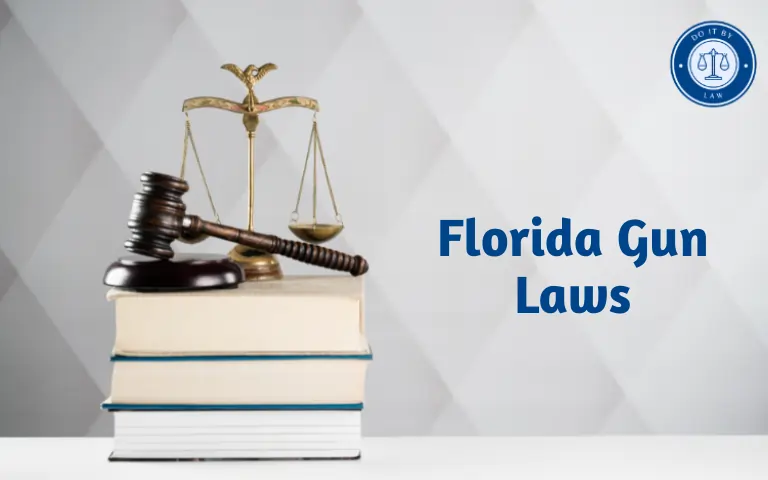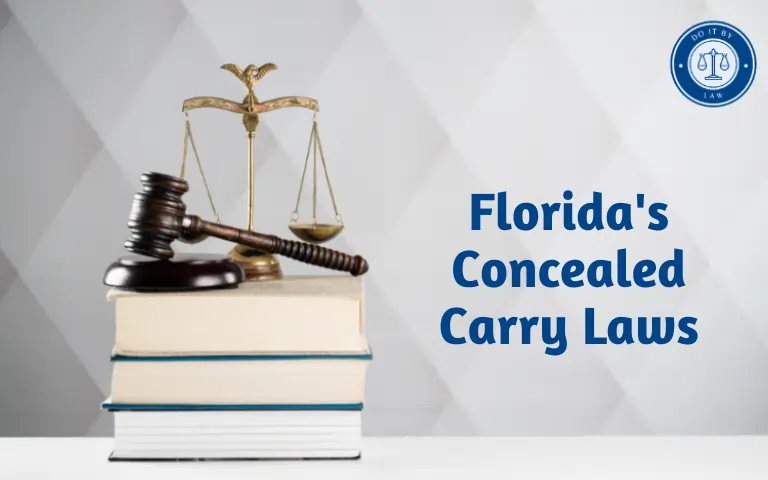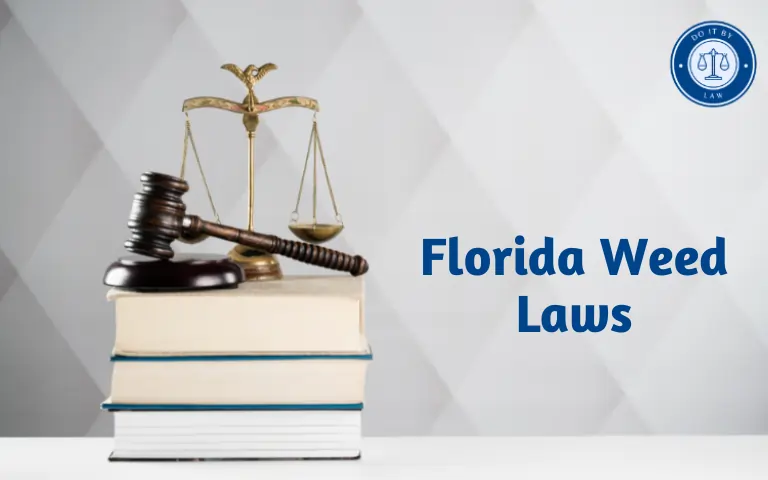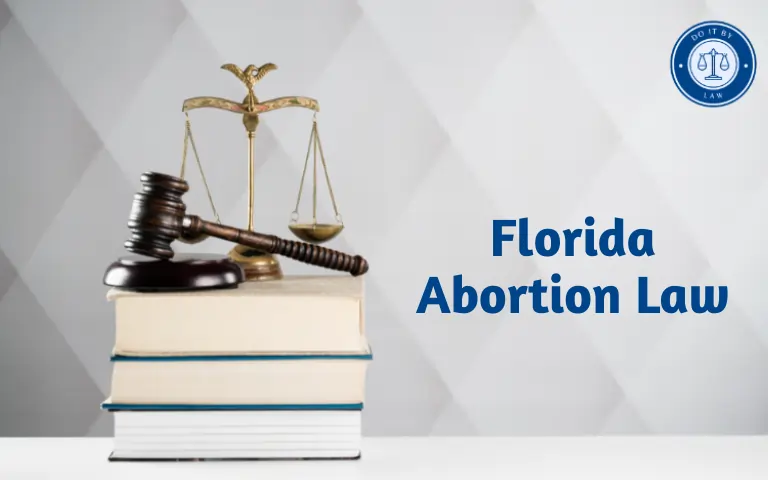Florida Gun Laws: What You Need to Know in 2024
Florida has some of the least restrictive gun laws in the United States, with statutes favoring the rights of gun owners over gun control. Here is an overview of key Florida gun laws, recent changes, and ongoing debates.
When Were Major Florida Gun Laws Enacted?
Florida’s gun laws have expanded rights and access over time:
- 1987 – Florida enacted its landmark concealed carry law allowing citizens to obtain permits to carry concealed weapons.
- 2005 – The state passed its “Stand Your Ground” self-defense law removing the duty to retreat before using force.
- 2011 – Florida made it illegal for employers to ban guns in customer parking lots.
- 2018 – The age to buy all firearms was raised from 18 to 21 after the Parkland shooting.
- 2019 – A law banned “gun-free zones” at churches, schools, and government buildings.
- 2022 – A new law allows permitless concealed carry without a permit or training.
Florida has consistently legislated greater legal gun access and rights for its citizens compared to many other states.
Who Do Florida’s Gun Laws Apply To?
Florida’s gun laws apply to all residents and visitors in the state. However, there are specific requirements and restrictions that individuals must meet or abide by:
- Age Requirement: Individuals must be at least 18 years old to purchase rifles and shotguns, and at least 21 years old to purchase handguns.
- Criminal Record: Convicted felons are prohibited from possessing firearms.
- Mental Health and Substance Abuse: Individuals who have been committed to a treatment facility for drug abuse, habitual alcohol and drug abusers, or those who have been committed to a mental institution within the last three years are not permitted to possess firearms.
- Domestic Violence: Individuals under a domestic violence court order are not allowed to possess firearms.
- Concealed Carry: As of July 1, 2023, Florida allows permitless concealed carry for lawfully owned weapons. However, to carry a concealed firearm, one must meet the same criteria required to apply for a Concealed Weapon License (CWL).
- Open Carry: Open carry is generally illegal in Florida, except under specific circumstances such as when engaged in or traveling to/from fishing, camping, hunting, or test/target shooting.
- Firearm in Vehicle: Individuals aged 18 or older may carry a gun in their vehicle without a concealed weapons permit, provided it is “within the interior of a private conveyance, without a license, if the firearm or other weapon is securely encased or is otherwise not readily accessible for immediate use”.
- Employer’s Parking Lot: Employers cannot prohibit their employees who are properly licensed under Florida law from storing any legally owned firearm inside a locked, privately-owned motor vehicle that is lawfully present in a parking lot maintained by the employer[1].
- Firearm Discharge: It is unlawful to knowingly discharge a firearm in any public place, or on the right of way of any paved public road, highway, or street, or over any road, highway, street, or occupied building, except in defense of life or property.
- Possession in Home: No permit is required to have a gun in one’s house in Florida.
It’s important to note that these laws are subject to change and individuals should consult with a legal professional or local law enforcement agency to ensure they comply with current regulations.
What Are Florida’s Key Gun Laws and Provisions?
Florida gun laws regulate sales, concealed carry, location restrictions, and other areas:
Some of the most important statutes regulating guns under Florida law include:
Firearm Purchases and Background Checks
- Residents must obtain a firearms license to purchase long guns and handguns.
- The minimum age to buy guns in Florida is 21.
- There is a mandatory 3-day waiting period for all firearm purchases.
- Private sales of guns require a background check.
- Firearm sellers must conduct an instant criminal records review.
Open Carry and Concealed Carry
- Openly carrying firearms in public is legal for those over 21.
- A license is required to carry concealed weapons.
- Concealed carry license classes and training are mandated.
- Campus carry is prohibited at Florida colleges and universities.
Allowed Firearms and Restrictions
- Semi-automatic rifles and shotguns are legal under state law.
- Bans exist on firearm types like bump stocks capable of automatic fire.
- Large-capacity magazines with over 10 rounds are generally prohibited.
- Fully automatic weapons require federal licensing.
Self-Defense Laws and Use of Force
- Florida has strong “Stand Your Ground” and “Castle Doctrine” self-defense laws.
- There is no duty to retreat when facing deadly threats in public spaces.
- Legal force can be used to prevent the commission of forcible felonies
What Are the Penalties for Violating Florida’s Gun Laws?
Florida penalizes unlawful gun use and possession with fines and imprisonment:
- Possession of a Firearm by a Convicted Felon: Convicted felons are not allowed to possess firearms in Florida. Violating this law is usually a second-degree felony, punishable by up to 15 years in prison and a $10,000 fine.
- Possession of an Illegal Firearm: Possessing machine guns, short-barreled rifles or shotguns, and armor-piercing or exploding bullets is generally a second-degree felony, punishable by up to 15 years in prison and a $10,000 fine.
- Carrying a Concealed Firearm Without a Permit: Depending on the type of weapon concealed, the charge may be a first-degree misdemeanor or a third-degree felony.
- Discharging a Firearm in Public: Discharging a gun in a public place or negligently discharging a firearm outside a residential area is a third-degree felony. If the gun is discharged in a vehicle within 1,000 feet of another person, it is a second-degree felony punishable by up to 15 years in prison and a $10,000 fine.
- Discharging a Machine Gun in Public: Discharging a machine gun in a public place, public street, or public park with the intent to do bodily harm is a first-degree felony punishable by anywhere from 25 years to life in prison.
- Allowing a Minor to Access a Loaded Firearm: This crime is a 2nd-degree misdemeanor punishable by up to 60 days in jail and up to $500 in fines.
- Enhanced Penalties Under Florida’s 10-20-Life Law: If a weapon is used during the commission of a crime, the person faces enhanced penalties. This includes a mandatory minimum sentence of 10 years if the accused had a weapon, 20 years if a weapon was discharged, and 25 years to life in prison if a person sustains injuries or dies.
- Violation by a Minor: A minor who violates certain gun laws commits a misdemeanor of the first degree and may serve a period of detention of up to 3 days.
These penalties can be more severe if the firearm violation is associated with another crime. It’s important to note that these penalties are subject to change, and individuals should consult with a legal professional or local law enforcement agency to ensure they understand the current regulations and penalties.
What Changes Were Recently Made to Florida’s Gun Laws?
Several major gun law changes passed between 2018 and 2022:
- In 2018, Florida raised the minimum age to purchase all firearms to 21 years old after the Parkland school shooting.
- In 2019, a bill restricted the ability of local governments to pass gun control laws and banned gun-free zones.
- In 2021, the “anti-riot” law enhanced penalties for crimes committed during violent protests.
- In 2022, a new law allows concealed carry of firearms without a permit, background check, or training.
- Bills proposed in 2023 seek to further limit gun-free zones and local gun control laws.
What Controversies Exist Around Florida’s Gun Laws?
Florida’s gun statutes generate heated debate:
- Public Safety – Gun control advocates argue loose laws endanger public safety by enabling access to firearms by criminals and unstable persons.
- Preemption – Critics oppose state preemption limiting the ability of local governments to pass gun control measures favored by their residents.
- Equal Rights – Some contend that the economic costs of permits, and training create barriers to exercising Second Amendment rights.
- Racial Bias – Lax screening and “stand your ground” principles have been challenged for promoting violence against minorities.
- School Safety – It remains contentious whether arming teachers or banning guns makes schools safer spaces.
- Gun Lobby Influence – Opponents criticize the political lobbying influence of the NRA in shaping Florida gun laws.
ron desantis florida gun laws
Florida Governor Ron DeSantis has made significant changes to the state’s gun laws during his tenure. One of the most notable changes is the signing of House Bill (HB) 543, which allows Floridians to carry concealed guns without a permit. This law, also known as “Constitutional Carry,” took effect on July 1, 2023.
While a background check and a three-day waiting period are still required to purchase a gun from a licensed dealer, these requirements do not apply to private transactions or exchanges of weapons. Despite this, nearly 3 million Floridians have a concealed weapons permit.
DeSantis has also expressed his belief that Florida should go even further and allow people to openly carry guns. However, it does not appear that the Legislature will pass such legislation in the current session.
In addition to these changes, DeSantis has been reported to have asked for guns to be banned at his campaign events, even as he pushed for permitless carry legislation.
Furthermore, DeSantis has expressed skepticism about the effectiveness of Florida’s red flag law, which allows judges to ban or remove firearms from individuals deemed a risk to themselves or others. Instead, he has suggested that institutionalizing more people with mental health issues would be a more effective solution.
These changes reflect a broader trend in DeSantis’s governance, which has been characterized by a conservative stance on issues such as gun control. However, it’s important to note that these laws and positions are subject to change, and individuals should consult with a legal professional or local law enforcement agency to ensure they have the most current information.
Conclusion
Florida has some of the most permissive gun laws in America championing the rights of lawful gun owners and carriers. Ongoing efforts seek to expand citizens’ legal use of firearms for self-defense and sporting activities through legislation increasing access and prohibiting local regulation. While supported by gun rights advocates, Florida’s minimal restrictions remain concerning to those favoring stronger gun control.






